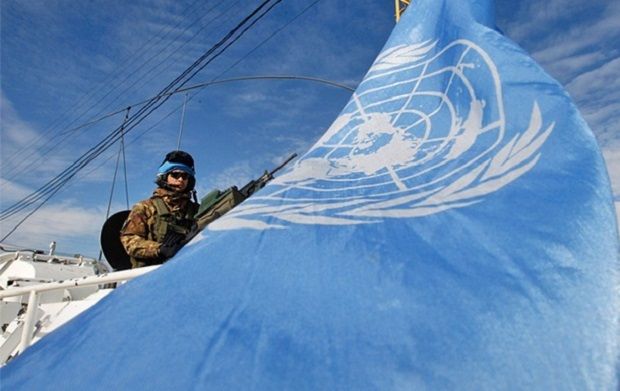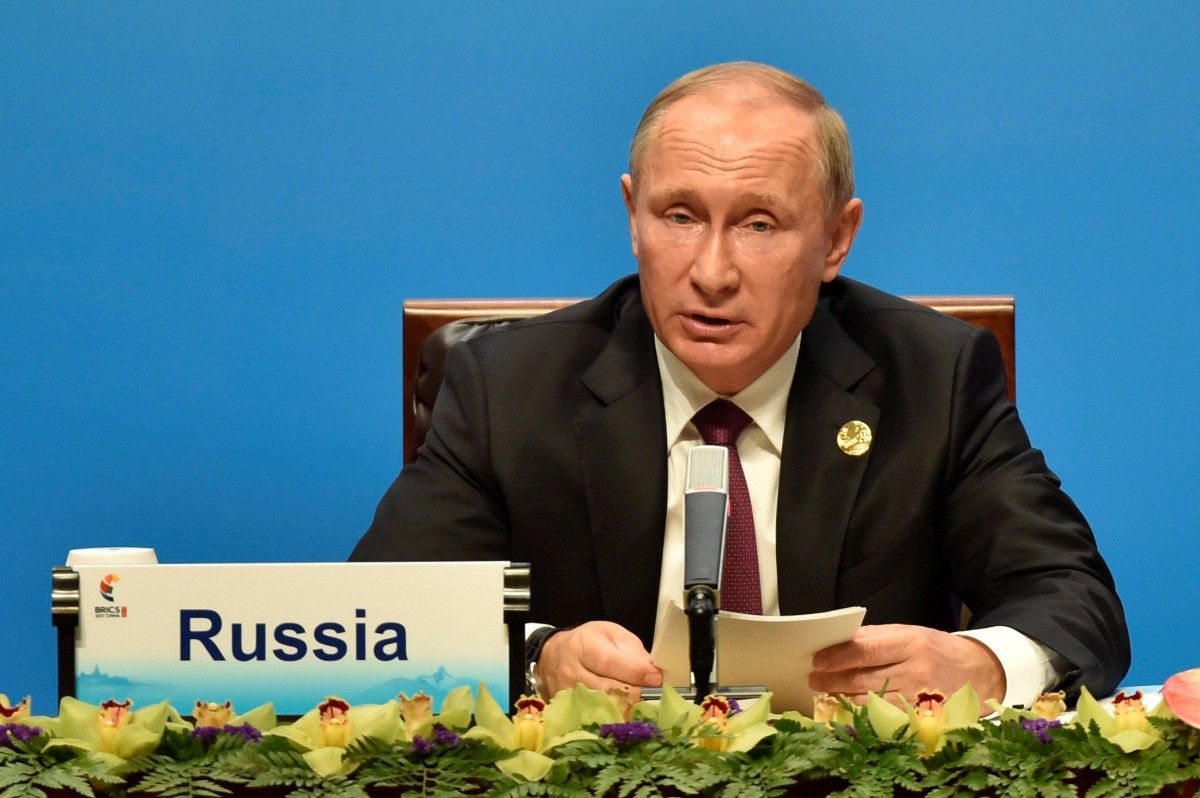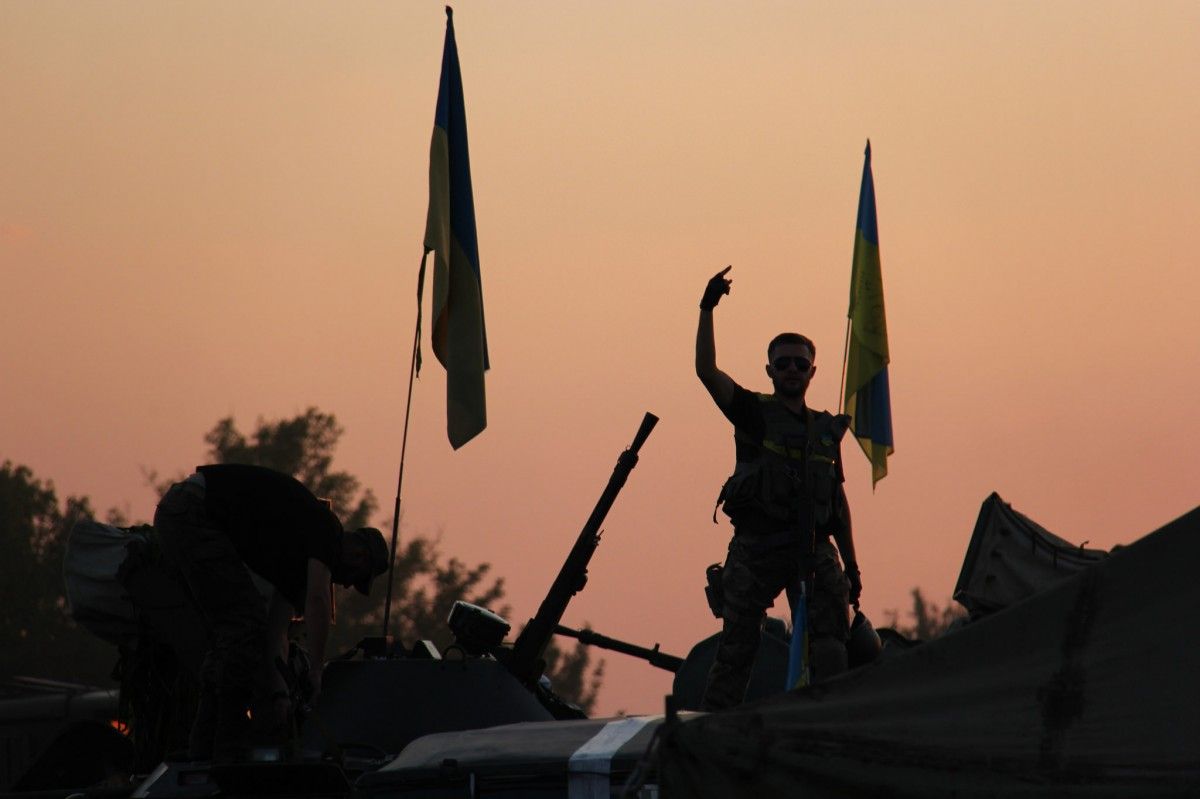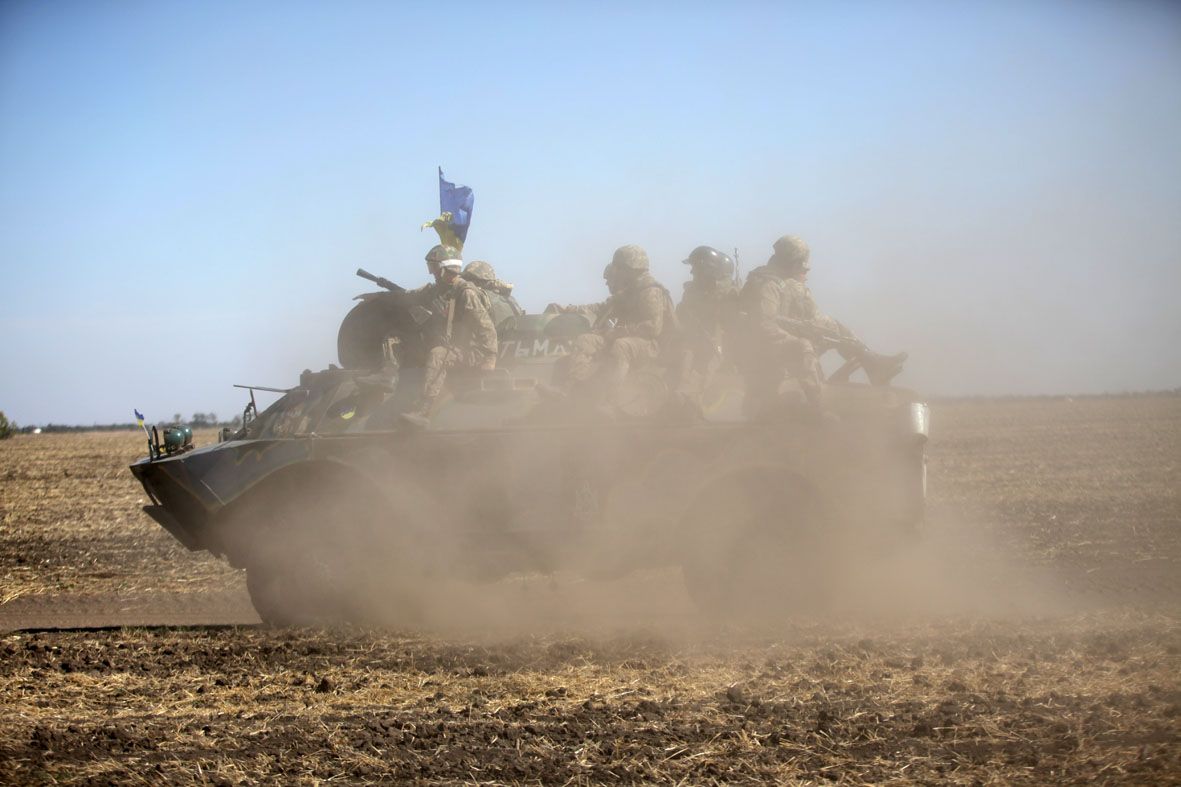
What Russian "peacekeepers" want
Russia’s hybrid aggression against Ukraine generates hybrid attempts on the part of the Kremlin to resolve this conflict. The whole world can already observe in Abkhazia, South Ossetia and Transnistria who “peacekeepers” are in Russian understanding. Does Ukraine need such "peacekeepers"? A rhetorical question, indeed...
The National Security and Defense Council (NSDC) of Ukraine in February 2015 approved an appeal to the UN and the European Union regarding the deployment of a peacekeeping mission in Ukraine. "The issue was considered and a decision was made to appeal to the UN and the EU regarding the deployment of peacekeeping and security missions in Ukraine," NSDC Secretary Oleksandr Turchynov told journalists at the time.
It was noted that the peacekeepers should be deployed both along the line of contact in Donbas and along the uncontrolled section of the Russian-Ukrainian border.
The reason for the decision was another escalation in Donbas. But Moscow's reaction was unequivocal: Minsk accords do not presuppose any peacekeepers – exclamation mark.
But now Russian presidential press secretary Dmitry Peskov argues that Putin never objected to the deployment of peacekeepers in Donbas: "Putin never objected to sending peacekeepers." After all, it's true. Personally, Putin "did not object." His faithful puppets did, though: for example, Speaker of the State Duma of the Russian Federation, Sergei Naryshkin, objected in 2015, standing categorically against the introduction of UN peacekeepers into the occupied territories of Donbas and along the border with Russia. Or Chairman of the Federation Council Committee on Defense and Security Viktor Ozerov, who then stated that "we should not forget that Russia as a permanent member of the UN Security Council is responsible for maintaining and restoring peace, and on its position depends whether peacekeepers will be sent to Ukraine." He added that Russia would not give consent to the peacekeeping mission including "representatives of NATO states."
But more than two years later, on September 5, 2017, during the BRICS summit in China, Russian President Vladimir Putin suddenly broke out with "peace-loving" statements toward Ukraine. And he made it clear that the deployment of UN peacekeepers in the conflict zone, which was recently mentioned by President of Ukraine Petro Poroshenko, was quite possible. However, in the Russian interpretation, this should be done "upon \ mutual consent of the parties to the conflict - unrecognized republics are one of the parties," only on the line of demarcation, and only to ensure security of the OSCE mission.
Attempt to legalize "LPR/ DPR"
Head of Da Vinci AG Anatolii Baronin believes that by such statements, by introducing them into the negotiation process, Putin tries to legalize "DPR" and "LPR" and shift the focus on implementation Minsk agreements to the deployment of peacekeeping contingent on the terms of the Russian Federation.
This opinion is shared by head of the Center for Russian Studies, ex-Minister of Foreign Affairs of Ukraine (2007-2009) Volodymyr Ohryzko, who calls the statement by Russian President Vladimir Putin on the introduction of UN peacekeepers to Donbas a PR campaign. On the one hand, this is a reaction to the initiative of Ukraine regarding the peacekeeping mission. On the other hand, it is another attempt to appoint gangs from "DPR" and "LPR" parties to the conflict and let Russia escape any accusations. According to Ohryzko, Putin wants to present Russia as a "peacemaker," not a participant in the conflict, and to claim that the Russian Federation is allegedly fighting for settlement “in the southeast of Ukraine.”
The latter point is all the more important because in the spring of 2018 presidential elections will be held in Russia, and the Russian electorate needs to be shown certain success of the authorities. Such success may be the fact that Russia, once again, "settled" a difficult situation, acted as a "peacemaker," and "strengthened" its global positions. Does anyone doubt that this is exactly how the Russian media will present this to the Russians?

Besides, the Russian Federation distorts the concept of the UN peacekeeping mission, defending the position of the "mission on the line of demarcation," not on the Ukrainian-Russian border. Putin even instructed his Foreign Ministry to submit the relevant resolution to the UN Security Council, which has already been reported by Russia's permanent representative to the UN. "This is either a general misunderstanding of what a peacekeeping mission is, or a conscious distortion of the concept. I think that this is the latter," Ohryzko is convinced.
According to him, such a proposal should not have any prospects in the UN Security Council. For example, that’s because the position of Ukraine as a direct participant in and victim of the conflict differs from that imposed by the Kremlin. "Kiev, obviously, cannot accept the line of demarcation in Donbas as the border of Ukraine because the real line passes along the Russian-Ukrainian state border. This is evident for the entire civilized world," the diplomat stressed.
However, if the Russian resolution does not pass the Security Council, it is possible that Russia will still use it. "Then Russian propaganda will accuse Ukraine of abandoning yet another ‘Russian peace plan’," the ex-minister said. “We are used to it: the war, including the ideological one, continues. Ukraine, in my opinion, should at least several times very clearly put the emphasis in the UN Security Council on what is happening in Donbas and Crimea, and how these problems should be addressed."
Game of "Peacekeepers"
However, in addition to Moscow's desire to seize from Kyiv there is another desire by Putin standing behind the initiative with the invitation of peacekeepers to Donbas - to prevent the restoration of Ukraine's control over its territory, by all means.
Ex-Consul General of Ukraine in Edinburgh and Istanbul, Chairman of the board of Maidan of Foreign Affairs Bohdan Yaremenko notes that Russian proposal implies a scenario of freezing the conflict at the expense of Ukraine's interests and expanding Russia's capabilities. "Peacekeepers on the line of demarcation, at most, will mean a ceasefire along the line of demarcation," he says.
On the other side of the scale is a decrease in the likelihood of the return of the occupied territories of Donbas and Crimea, deterioration of the domestic political and foreign political situation for Ukraine.
However, Putin's proposal is at odds not only with Ukraine's position, but also with the vision of a solution to the conflict by France and Germany, which are already beginning to talk about the need to contribute to the OSCE mission taking control of the Russian-Ukrainian border and the rest of the occupied territories of Donbas.
In this regard, according to Yaremenko, Putin is now fulfilling a tactical task: to seize the initiative with peacekeepers from Ukraine, to demonstrate his own "craving for peace," and the focus on dialogue.
Anatolii Baronin agrees. According to him, given that the scenario of deploying peacekeepers throughout the occupied territory of Ukraine, including along the border with the Russian Federation, is not part of the Kremlin's plans, since it will make it impossible to supply weapons, regular troops and mercenaries to the occupied territories of Donbas, Putin is trying to adjust the version for the deployment of peacekeepers, at least to make it look as an alternative to the Ukrainian initiative. Russia needs this to generate some discussion in the UN Security Council.
At the same time, it should be taken into account that if we move in the international field, in accordance with the principles of the UN Charter and the precedents used in the cases of the introduction of peacekeeping missions, the Russian Federation may offer some options, but the final version should be approved by Ukraine.

In addition, one must take into account the situation in the ATO zone. According to Baronin, the point is that if the intensity of shellings and tensions in Donbass is at the level of 2015, not to mention 2014, then the UN will not be able to provide a peacekeeping contingent. The deployment of a peacekeeping contingent is possible only if the intensity of hostilities is very low and there is no use of large-caliber weapons and rocket launchers by the Russian Federation and its proxies.
Neither peace nor war
In turn, Oleksiy Melnyk, co-director of foreign policy and international security programs at Razumkov Center, is convinced that President Vladimir Putin's statement on the introduction of UN peacekeepers on the line of demarcation in Donbas is conditioned by his desire to win at any price the war with Ukraine.
"As for the statement about the peacekeepers… The main thing that should be understood is that the logic of the actions of the Russian president and the leadership as a whole is dictated not by an attempt to settle the conflict, but by an attempt to achieve victory in this conflict. In fact, that’s the reason the war was started, from Crimea to Donbas," said Melnyk.
In his opinion, Ukraine needs to take such Russian initiatives exactly from this angle. Of course, this does not mean that Kyiv should strike a categorical pose and completely deny such initiatives. Indeed, more recently, the initiative on peacekeepers has constantly come from Ukraine. Therefore, to try to deny or categorically oppose it now only because Russian President Putin is trying to intercept the initiative, would be illogical and incomprehensible for international partners of Ukraine.

However, Ukraine should be extremely focused, have its own plan and vision of what this peacekeeping mission should be, its format, mandate; and consistently defend all this in the international arena in order to prevent Russia from using the idea of a peacekeeping mission in its own interests.
"The introduction of peacekeepers to Donbas is not unrealistic, but the question is whether this mission, its mandate and composition will meet the declared goals. In any case, this may be a step toward ending the bloodshed, but tomorrow will come, and when this mission will be coming out of there, what will Ukraine get? Will Ukraine's prospects as a sovereign state be undermined for decades to come?" Melnyk noted.
"The peacekeeping mission is not a panacea, and as a rule, it leads to the freezing of the conflict," he adds.
According to him, today there are almost 100 peacekeeping missions deployed around the world. Some of them have been lasting for more than 60 years. And only a few yielded an actual establishment of peace and conflict settlement...
So what is Ukraine to do? Kyiv should recall the year of 2015, when Russia demanded for the occupied territories, instead of peacekeepers, a "special status for Donbas", "amnesty", and "federalization". All these wishes by the Kremlin ended up in the fact that the anti-Russian sanctions prevailed.
Moreover, by and large, Putin has lost Ukraine. He failed to suppress Europe and no pact was reached with Trump. And it is unlikely that the UN Security Council is willing to negotiate with Russia on Moscow’s terms. Rather, the international community has begun to see things clearer and is looking for ways to resolve conflicts without Russia. And Ukraine will benefit from this fact.
Kostyantyn Honcharov

